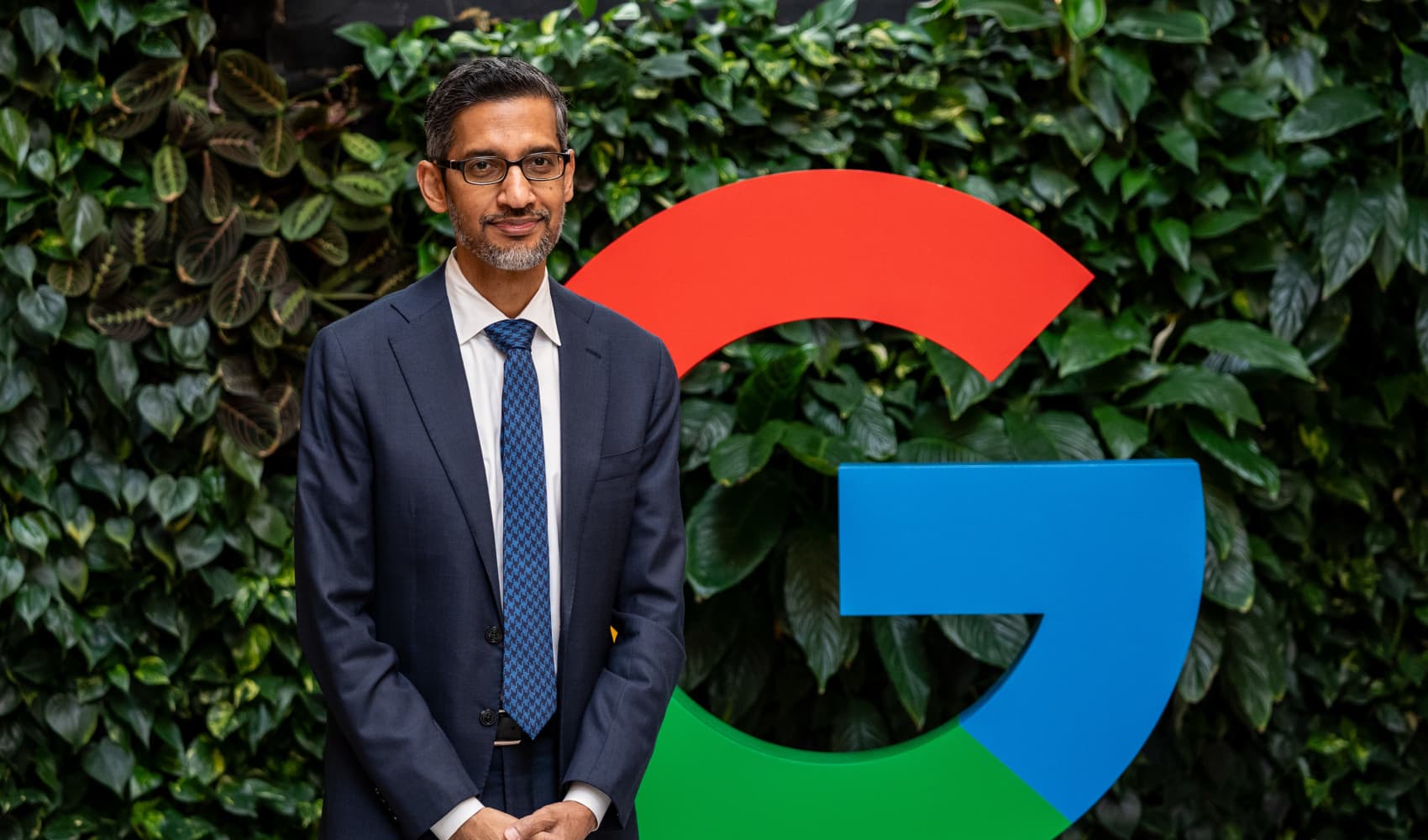Google Ad Antitrust Trial: What It Means for Your Business
Google Ad Monopoly: Remedies Trial Looms, What It Means for You
Introduction: The Advertising Giant Faces Reckoning
The digital advertising world is about to witness a showdown. On September 22nd, the remedies trial in the U.S. government's antitrust case against Google's advertising technology is set to begin. You might be thinking, "Okay, another legal battle. What does this have to do with me?" Well, this trial has the potential to reshape how online advertising works, impacting everyone from small business owners to everyday internet users. Imagine a world where online ads are less intrusive, more relevant, and offer a fair playing field for all businesses. That's what's at stake here.
Google Found Liable: Monopoly Power Confirmed
Let's rewind a bit. Last month, U.S. District Judge Leonie Brinkema declared Google liable for "willfully acquiring and maintaining monopoly power" in the online advertising market. This isn't just a slap on the wrist; it's a significant ruling that acknowledges Google's dominance and its potential abuse of that power. Think of it like this: Google built the stadium, owns all the food concessions, and sets the rules for the game. That kind of control can stifle competition and harm consumers.
The Remedies Trial: Shaping the Future of Online Ads
So, what exactly is a "remedies trial"? This phase of the legal process is all about determining how to fix the problem. The government will argue for specific actions that Google needs to take to restore competition in the online advertising market. This could involve breaking up Google's ad tech business, forcing them to share data with competitors, or implementing stricter regulations. It's like a doctor prescribing a treatment plan after diagnosing an illness.
What's on the Table: Potential Remedies
The exact remedies being proposed are complex and still being debated. However, some of the potential options include:
- Forcing Google to divest its ad server and ad exchange businesses.
- Requiring Google to make its ad tech more interoperable with competing platforms.
- Imposing restrictions on Google's ability to acquire other ad tech companies.
- Establishing an independent monitor to oversee Google's compliance.
Understanding Google's Ad Tech Stack: A Simplified View
To understand the antitrust case, you need a basic grasp of Google's ad tech. Imagine it as a complex supply chain connecting advertisers with publishers (websites). Google essentially controls almost every stage of this chain:
The Key Players in the Ad Tech Ecosystem
- Advertisers: Businesses that want to display ads online.
- Publishers: Websites that sell advertising space.
- Ad Servers: Platforms used to manage and deliver ads.
- Ad Exchanges: Marketplaces where ad space is bought and sold in real-time.
The Government's Argument: Tying and Integration
The government's argument centers around the idea that Google has "tied" its ad server and ad exchange together in an anti-competitive way. They allege that Google has used contractual policies and technological integration to favor its own products and disadvantage competitors. It's like offering a bundled deal that makes it difficult for customers to choose alternatives.
Impact on Businesses: Small and Large
How could this trial affect your business? If you're an advertiser, you might see lower ad prices and better targeting options if Google is forced to compete more fairly. If you're a publisher, you might gain access to a wider range of ad buyers and earn more revenue from your website.
Leveling the Playing Field: Opportunities for Competitors
A successful outcome for the government could open the door for new players to enter the ad tech market and challenge Google's dominance. This could lead to innovation, lower prices, and more choices for both advertisers and publishers.
The Broader Implications: Data Privacy and Control
This antitrust case also raises important questions about data privacy and control. Google collects vast amounts of data about our online behavior, which it uses to target ads. By limiting Google's power, the remedies trial could potentially lead to greater transparency and control over our personal data. Think of it as giving consumers more say in how their information is used.
Google's Defense: Innovation and Efficiency
Of course, Google argues that its dominance is simply a result of its superior technology and efficiency. They claim that their ad tech products offer the best value to both advertisers and publishers. Google will likely argue that breaking up its business would harm innovation and ultimately hurt consumers. It's a classic argument often used by companies facing antitrust scrutiny.
The Role of Judge Brinkema: A Key Decision-Maker
Judge Leonie Brinkema will play a crucial role in determining the outcome of the remedies trial. She will weigh the evidence presented by both sides and ultimately decide what actions Google needs to take. Her previous ruling finding Google liable gives us a strong indication of her perspective.
What to Expect During the Trial: Testimony and Evidence
The remedies trial will involve testimony from experts, executives, and other witnesses. Both sides will present evidence to support their arguments, including documents, data analysis, and market research. It will be a complex and highly technical process.
The Timeline: When Will We Know the Outcome?
The remedies trial is scheduled to begin on September 22nd, but it's difficult to predict how long it will last. After the trial concludes, Judge Brinkema will need time to review the evidence and issue her ruling. It could be several months, or even years, before the case is finally resolved.
Beyond the Courtroom: Public Opinion and Regulation
The outcome of this antitrust case will also be influenced by public opinion and regulatory pressure. Lawmakers around the world are increasingly concerned about the power of big tech companies and are considering new regulations to address these concerns. This case could serve as a catalyst for broader reforms in the digital advertising market.
The Future of Advertising: A More Competitive Landscape?
The ultimate goal of the antitrust case is to create a more competitive and transparent advertising market. This could benefit businesses of all sizes, as well as consumers. Imagine a future where online ads are more relevant, less intrusive, and more respectful of our privacy. That's the promise of a truly competitive digital advertising ecosystem.
Conclusion: A Pivotal Moment for the Digital Economy
The Google advertising antitrust remedies trial represents a pivotal moment for the digital economy. The outcome of this case will have far-reaching consequences for the online advertising market, affecting businesses, consumers, and the future of the internet. Whether it leads to a significant restructuring of Google's ad tech business or a more nuanced set of regulations, the trial underscores the importance of ensuring fair competition and protecting consumer interests in the digital age. Keep an eye on September 22nd – the future of online advertising may very well depend on it.
Frequently Asked Questions
Here are some common questions about the Google advertising antitrust case:
What is antitrust?
Antitrust laws are designed to prevent monopolies and promote competition in the marketplace. They aim to protect consumers from unfair pricing, reduced innovation, and limited choices.
Why is the government suing Google?
The U.S. government is suing Google because it believes the company has illegally monopolized the online advertising market, stifling competition and harming consumers.
What could happen if Google loses the trial?
If Google loses the trial, it could be forced to break up its ad tech business, share data with competitors, or implement other remedies to restore competition. The specific actions will be determined during the remedies phase of the trial.
How will this affect small businesses?
A more competitive advertising market could lead to lower ad prices, better targeting options, and more opportunities for small businesses to reach their customers online.
How can I stay informed about the trial?
You can stay informed about the trial by following news coverage from reputable sources, reading legal blogs, and monitoring updates from the Department of Justice.

